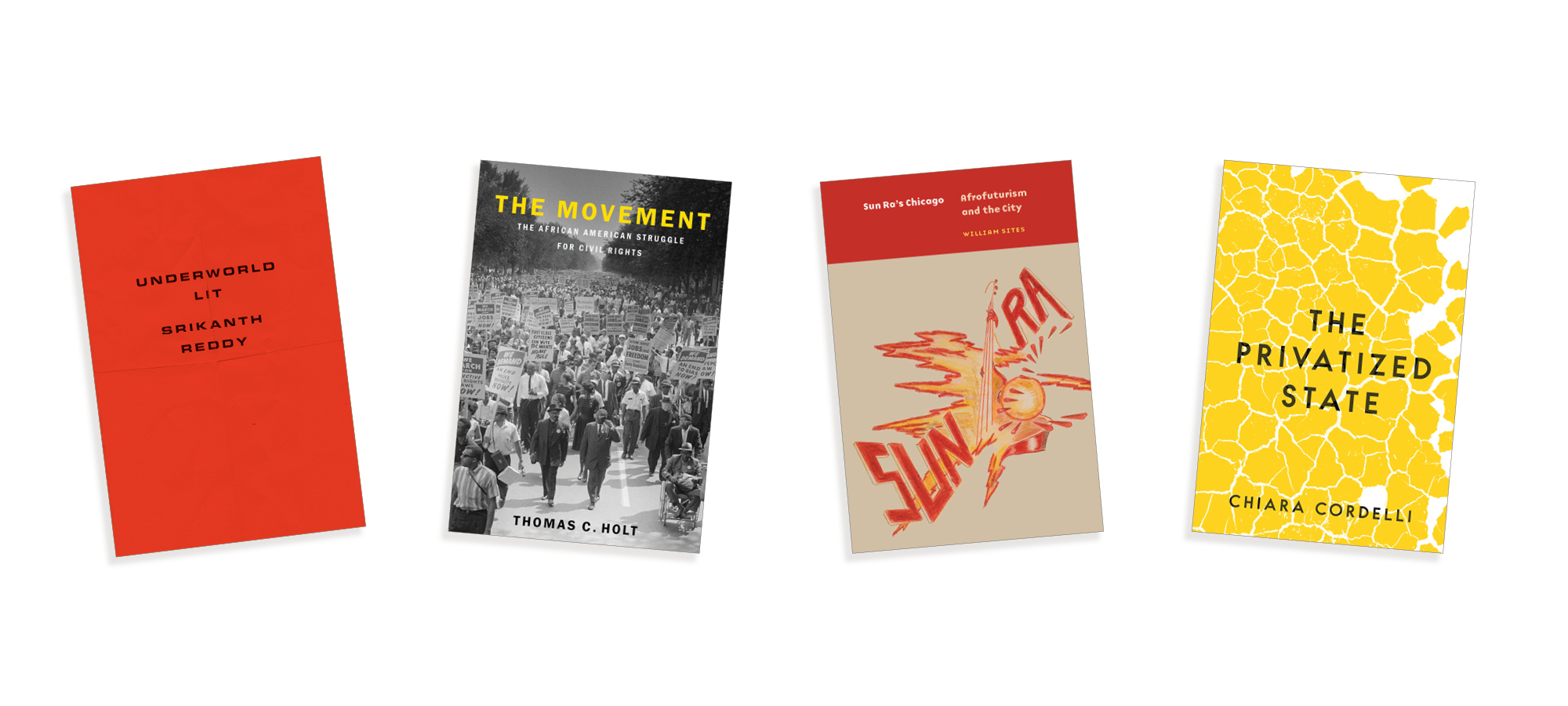
A selection of recent books by UChicago faculty members.
Underworld Lit
By Srikanth Reddy, Professor of English
Srikanth Reddy’s serial prose poem follows a fictive English professor who faces adversity: a bleak tenure outlook, poor teaching evaluations, and a melanoma diagnosis. Over one academic year, fall to summer, this narrator shuttles from home to clinic to classroom, where he is teaching Hum 101: Introduction to the Underworld. Every book on the syllabus is a Book of the Dead: Egyptian, Mayan, and more. Reddy’s poem spirits the reader into those distinct underworlds, fluidly shifting between realms and styles, life and death, hell and purgatory, quotidian existence and eternal afterlife. Underworld Lit balances its satire of contemporary higher education with an age-old exploration of mortality.
The Movement: The African American Struggle for Civil Rights
By Thomas C. Holt, James Westfall Thompson Professor Emeritus of American and African American History
In a compact 120 pages, Thomas C. Holt shines new light on the US civil rights movement of the mid-20th century. As a young man Holt himself marched in his hometown of Danville, Virginia, during a visit by Martin Luther King Jr., and was jailed for his participation in that and other political demonstrations. His book emphasizes the many who took part in the struggle rather than its most visible leaders, reframing this important passage in American history as a grassroots movement of ordinary people. Holt’s analysis shows the movement had origins in earlier, lesser-known protests mounted successfully against racist Jim Crow laws during what some call the “long civil rights movement,” and in the service of 1.5 million African Americans in World War II, which gave them a surer sense of their rights.
Sun Ra’s Chicago: Afrofuturism and the City
By William Sites, Professor in the Crown Family School of Social Work, Policy, and Practice
In 1946 a young musician and composer named Sonny Blount moved to Chicago’s Washington Park neighborhood. His years living on the South Side, sociologist William Sites writes, were decisive for the career of experimentation and innovation that followed. Sun Ra and his Arkestra made history with exuberant performances and recordings synthesizing many styles into their own. The postwar South Side where the bandleader spent 15 years was a crossroads for any number of intellectual and musical sources, including Afrocentric philosophies. Through extensive research into this cultural scene, Sites argues that it was critical to Sun Ra’s development, to the emergence of Afrofuturism, and to a sense of the city as a space rife with possibility for Black Americans.
The Privatized State: Why Government Outsourcing of Public Powers Is Making Us Less Free
By Chiara Cordelli, Associate Professor of Political Science
In the United States employees privately contracted by the federal government—to run prisons, fight wars, inspect food, and perform many more functions—now outnumber federal civil servants nearly three to one, writes Chiara Cordelli in The Privatized State. Moreover, in some US states, nonprofit organizations provide up to 90 percent of social services, and sectors like education rely increasingly on private philanthropy. Cordelli argues that this high degree of privatization, seen in democracies abroad as well as in the United States, works against freedom, justice, and government legitimacy. The privatized state reproduces conditions that Enlightenment thinkers associated with precivil societies: provisional justice, undue dependence, and unequal freedom. A democratic and just government requires robust public institutions, and constitutional limits should be placed on privatization, she contends.
